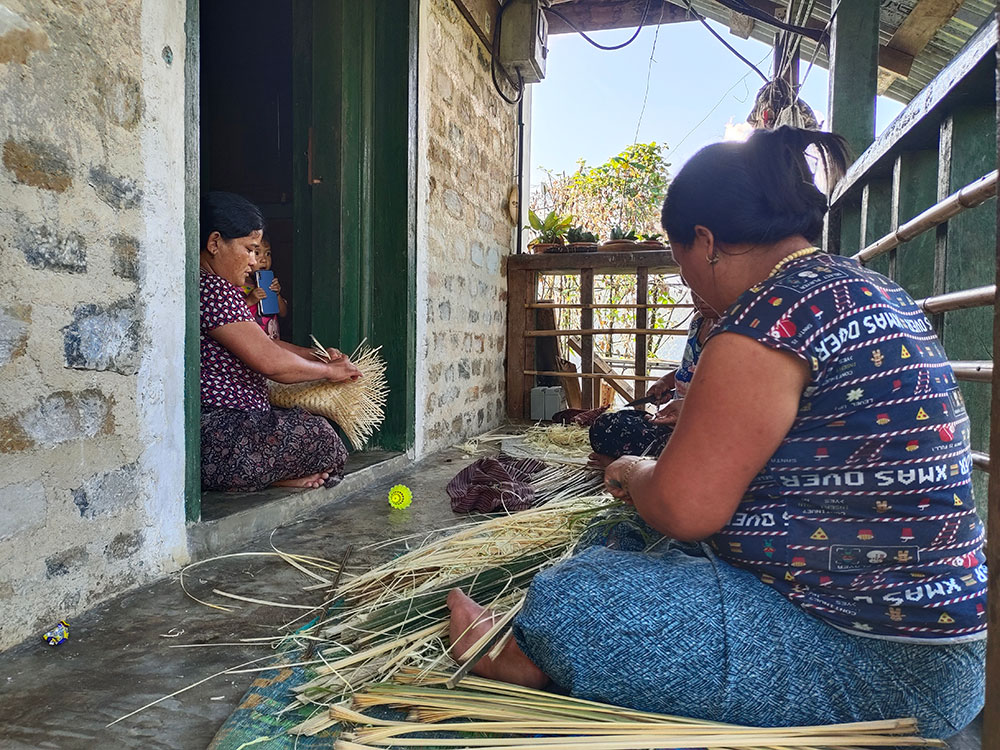Lhakpa Quendren
In Bjoka, Zhemgang, bamboo has long been the lifeblood of the local community, serving as a primary source of income. However, a growing concern now looms over this cherished resource as every household engages in bamboo crafting, known as Tshazo, leading to worries about its sustainability among the local artisans.
For the past five years, the artisans have been grappling with a shortage of bamboo resource essential for crafting their iconic basketry and various bamboo products. To meet their needs, they have had to resort to purchasing bamboo from neighbouring gewogs.
Sangay, a 49-year-old artisan and the chairperson of the Bjoka Bamboo Craft Cooperative Group, lamented the depletion of their community forests’ bamboo resources. He said, “In the past, we had an abundance of bamboo in the forest, but now, we are losing it as every family is engaged in crafting.”
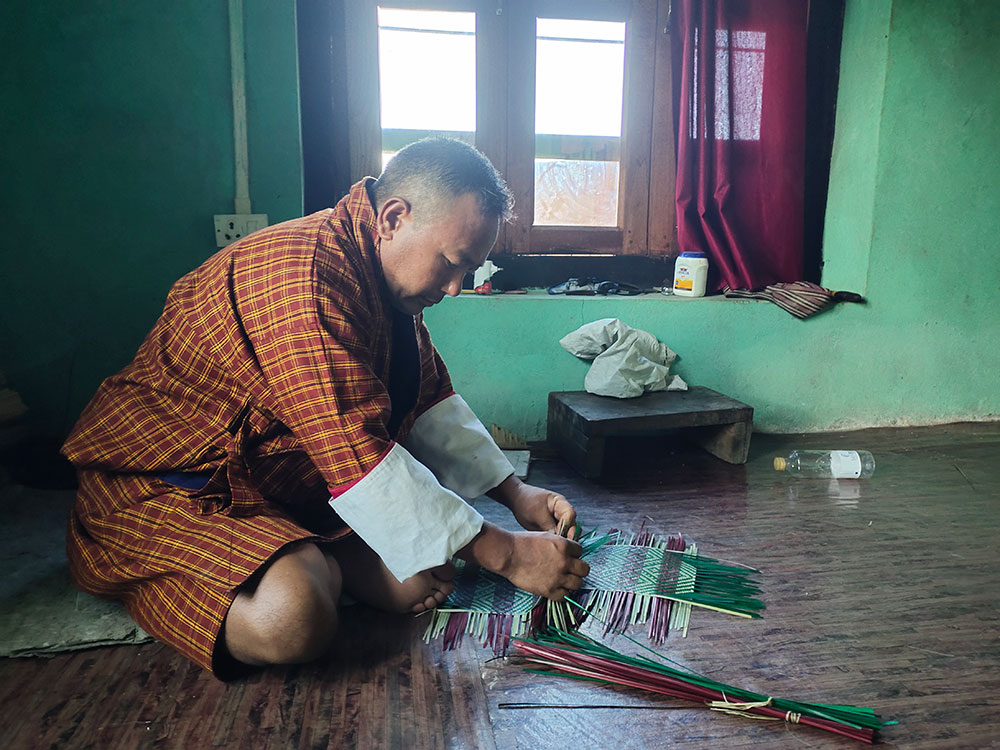
Tshazo is the main source of income for Bjoka in Zhemgang
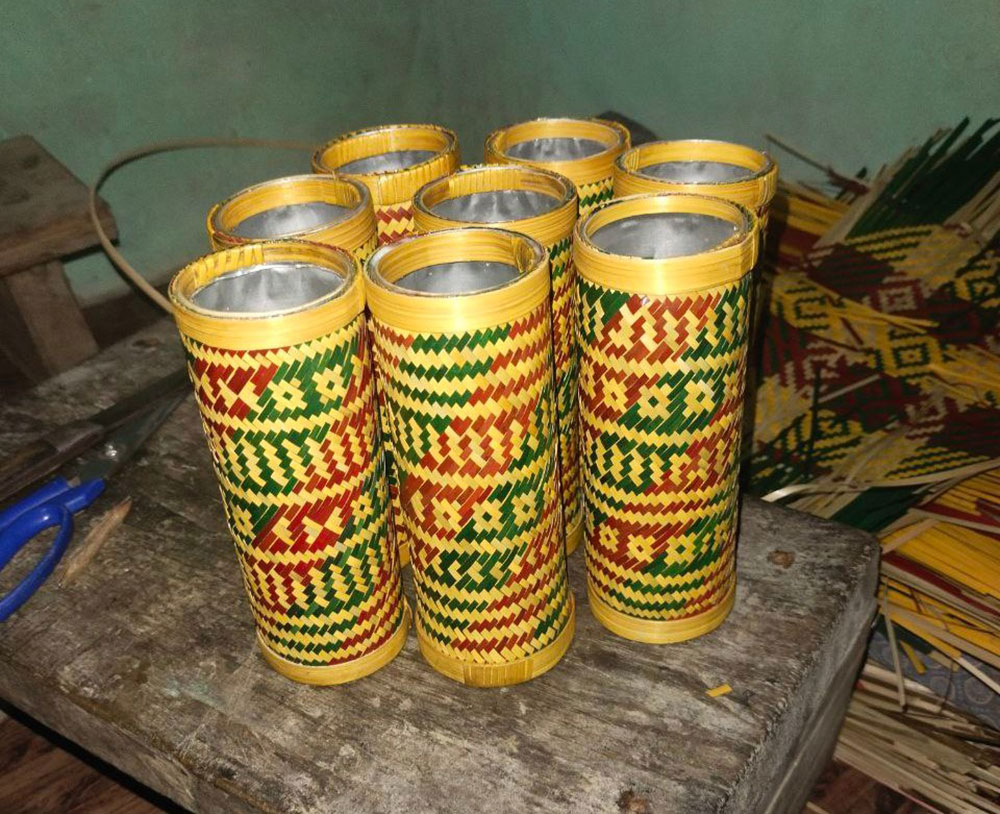
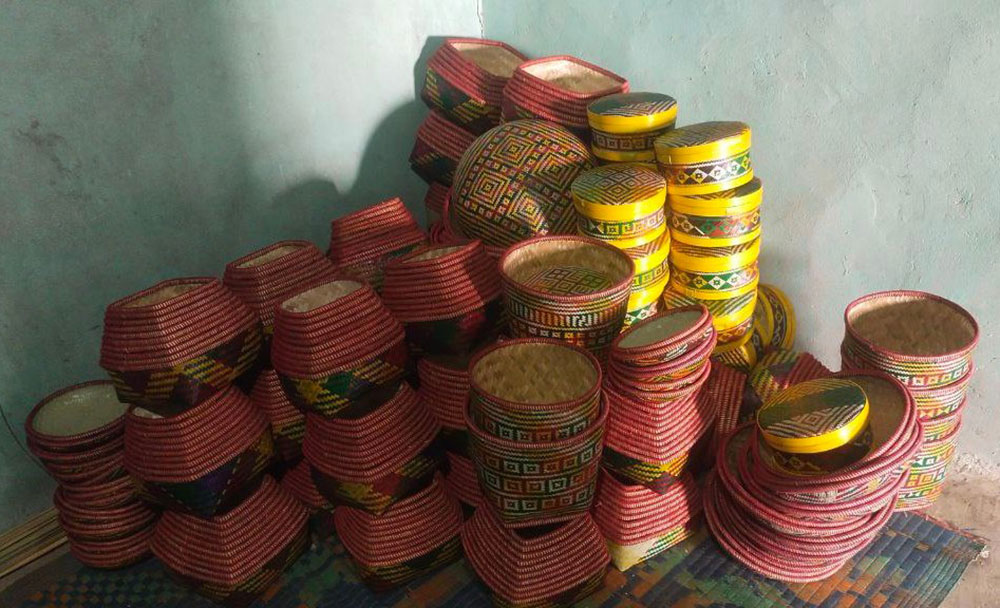
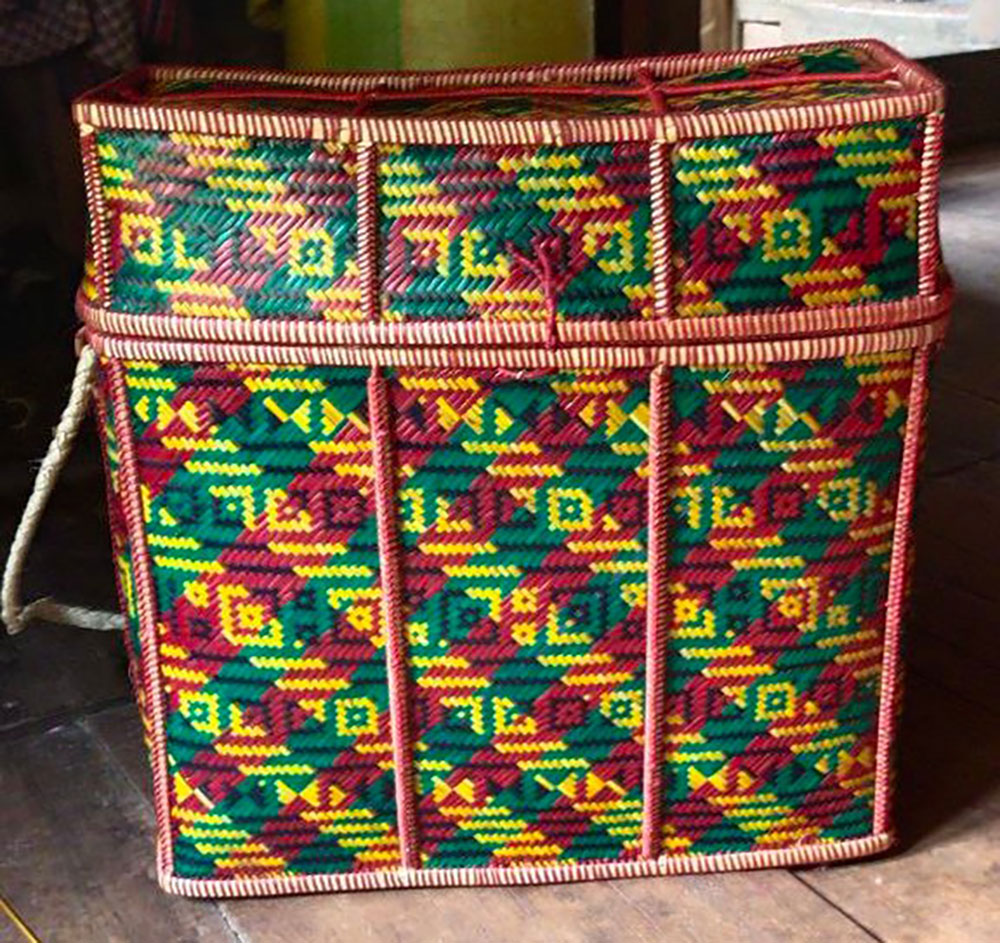

The people of Bjoka depend on bamboo products not only for their livelihoods but also for sustenance, as it helps them earn more than Nu 150,000 a year. Sangay said, “The bamboo work has brought a positive change in the lives of the local artisans. Without bamboo, our everyday lives would be difficult.”
Despite the bamboo shortage, artisans persist in crafting bamboo items. Sangay said that they now pay Nu 500 for a bundle of bamboo, enough to produce three pairs of Bangchung, a traditional Bhutanese bamboo container.
“While we do some farming, our main livelihood comes from bamboo products. I earn over Nu 300,000 every year from selling bamboo products,” Sangay said.
The Bjoka Bamboo Craft Cooperative Group comprises approximately 200 registered households from five chiwogs in Bjoka. Each household actively engages in bamboo product manufacturing, helping them procure essential items.
In response to the high market demand for bamboo products, their craft has evolved to include decorative gift items. While there used to be only five bamboo item designs in the past, they now offer over 30 different varieties for commercial purposes.
Sustainable measures
To safeguard the sustainable management of natural forest resources, the Bjoka Bamboo Craft Cooperative Group has formulated stringent rules and regulations for its members which prevent members from indiscriminately cutting bamboo in their forests.
Now, each household is allowed to collect bamboo only twice a month, with a limit of two people from each household participating in collection activities. In the past, bamboo collection was unregulated and depended on the availability of family members.
Sangay said, “There were no specific rules for taking care of bamboo in the forest. Sustainability was not a concern due to a lack of knowledge and awareness.”
To address this issue, the group has taken steps to educate its members on sustainable bamboo management.
Many households have taken the initiative to plant bamboo on their private lands, with some already having enough bamboo to support their weaving work. Sangay emphasised the advantages of this approach, saying, “Planting bamboo on our own land has many advantages. We don’t have to follow a specific collection schedule and can cut when needed for weaving.”
Alternatives must be sought, Sangay said. “We can plant bamboo in the forests because relying solely on the bamboo grown in our private land is not sustainable.”


